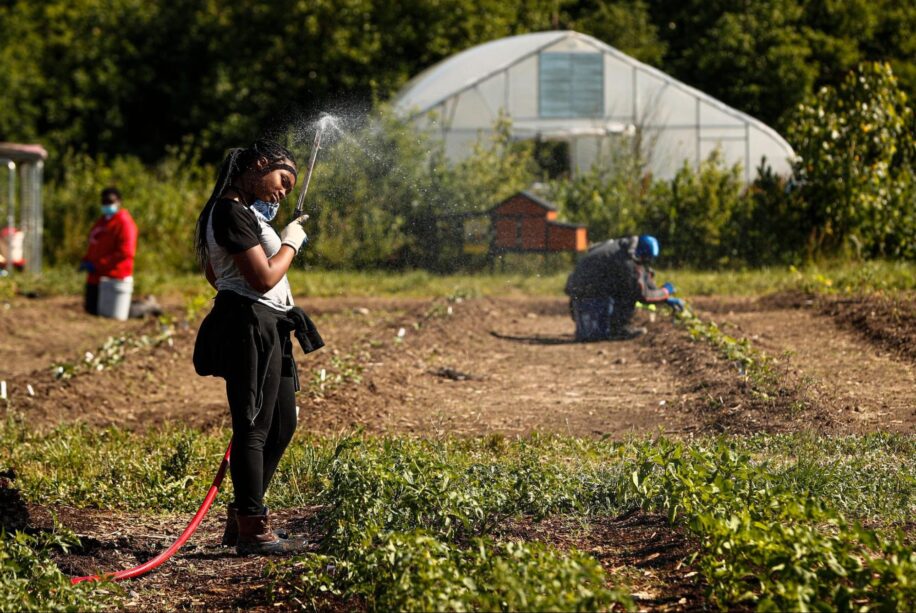The number of Black farmers across the country has continued to decline for many years. Only 134 farmers in Indiana identify as Black compared to 93,700 farmers who identify as White, according to the United States Department of Agriculture (USDA).
This means that Black-owned farms make up less than 1% of all farms in Indiana. As well, 98% of U.S. land is owned by white operators, per the National Young Farmers Coalition.
Why? Although many small farmers struggle to compete in an industrial world, Black farmers often face racism on top of day-to-day challenges. Racism is suffered in the form of vendors and customers, but the USDA has had a history of discrimination against Black farmers itself.
Since the USDA was established in 1862, Black farmers have been required to collateralize more than white farmers. For example, former enslaved Black farmers were required to have credit or collateral to secure a farm loan, while White farmers did not.
In 2003, applications for a White-owned farm were processed in an average of 60 days, while Black-owned farm applications took an average of 220 days to process. Still today, Black farmers have foreclosed at higher rates than any other race. This is likely because Black farms make up less than 3% of the USDA farm loan recipients.
At Growing Places Indy, our mission is to empower others, regardless of ethnicity, to cultivate individual, family, and community wellness through urban agriculture, food access, and mind-body education. Therefore, we recognize the need to bring more attention to those in the community that faces disadvantages and inequality on a daily basis. For Black History Month, we will share resources to learn more about the experience of Black farmers, their place in agricultural history, their contributions, and how to support them.
Supporting Black-owned farms can be as easy as researching farms in your community, contributing time through volunteer work, and purchasing produce from Black farmers. Use your purchasing power and your voice to support Indiana’s Black community. This could mean buying products from local Black farmers or spreading the word about their business on social media.
Learn more about some of Indiana’s Black-owned farmers and how to support them.
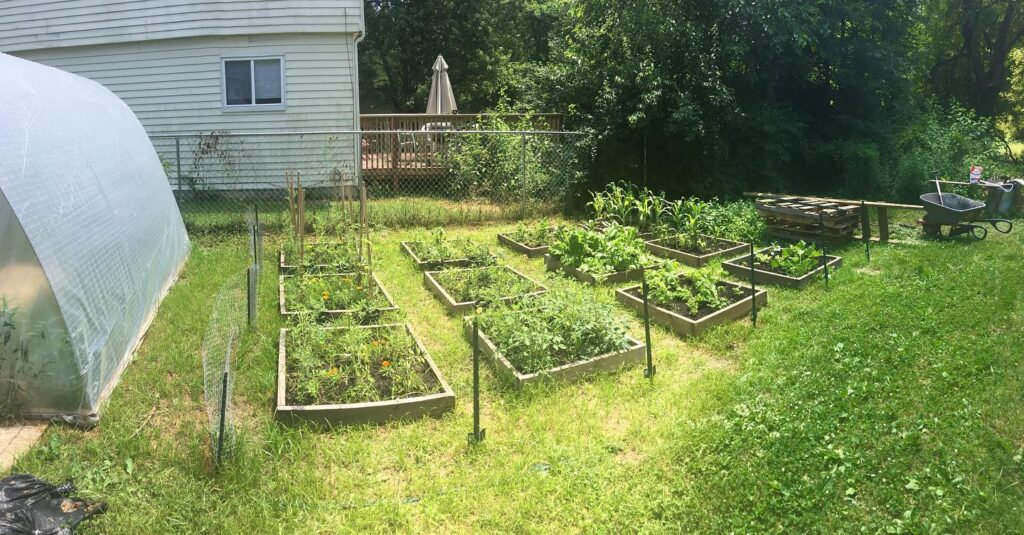
Solful Gardens, LLC. is recognized by the Indiana State Department of Agriculture as a natural producer and grower. Their mission is to make fresh, natural, and healthy produce available to all while disrupting the current industrialized food system. They focus on food equity by bringing access to quality to underserved urban communities.
Show your support by following them on Instagram and Facebook
Dr. Jarrod Dortch is the owner and operator of Solful Gardens and is also a Professor of Communication at Ivy Tech Community College. Not only did he start Solful Gardens with the goal of increasing food access, but he also finds growing food helps him connect with the natural world by nurturing a plant from seed to fruit.
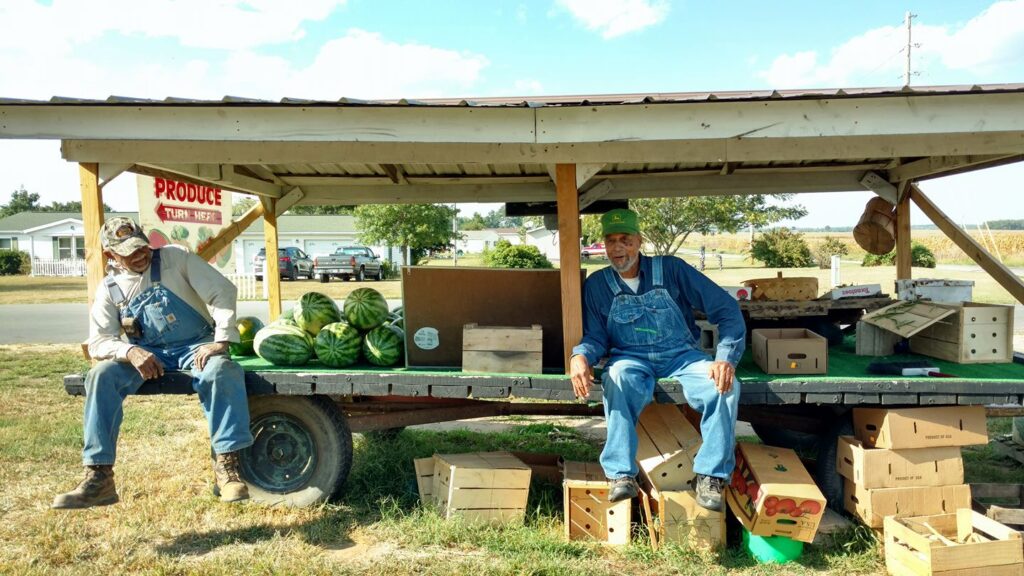
Legacy Taste of the Garden, run by the Greer-Jamerson family, was created to pass on generational knowledge of sustainable and entrepreneurial living. They desire to bring back the knowledge of growing and using fresh produce, teaching how to obtain a lifestyle in agriculture, entrepreneurship, and self-sustainability.


The Greer’s farmland has been passed down through the family for generations, starting with Norman Greer in the 1850s. The farm is currently run by Denise Jamerson and her son DeAnthony who share a passion for continuing the farm’s legacy and giving back to the community.
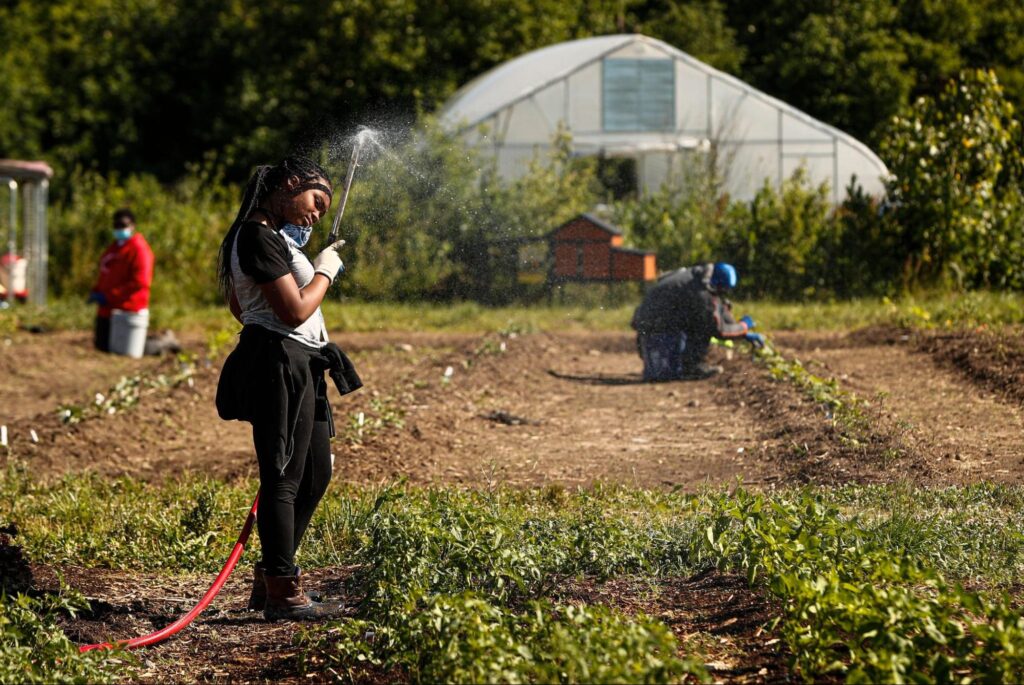
Lawrence Community Gardens is a 7.6-acre farm that uses a cooperative business model to empower young people with knowledge and skills to grow food as a foundation to build a sustainable community. Students work together to operate the farm and farm stand with a mission to serve the neighborhood with affordable access to organic produce and donations to pantries for those who are food insecure.
Connect with them on Facebook.
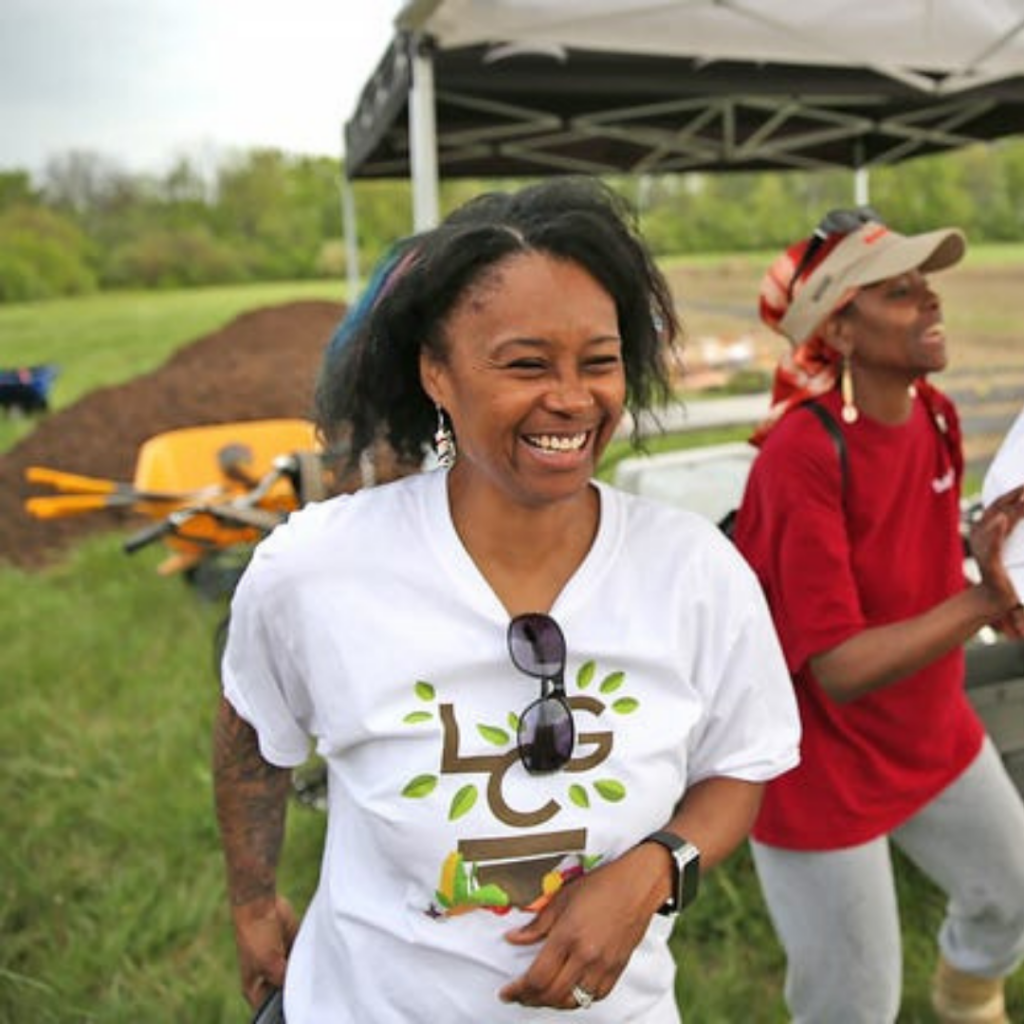
Sharrona Moore is the founder and garden manager of Lawrence Community Gardens. She received an Urban Agriculture Certificate from Purdue Extension in the same year that she started Lawrence Community Gardens. She continues to be an avid activist for food justice in the Indianapolis community.

Elephant Gardens, LLC. is an urban garden established for the purpose of promoting healthy diets, training the youth of the community to grow organic vegetables and fruit, and fostering a positive community environment to raise families. They are located in the northeastern area of Indianapolis, which is designated as a food desert. The Elephant Garden provides healthy organic vegetables, some fruits, and other foods for the community.
Connect with them on Facebook.
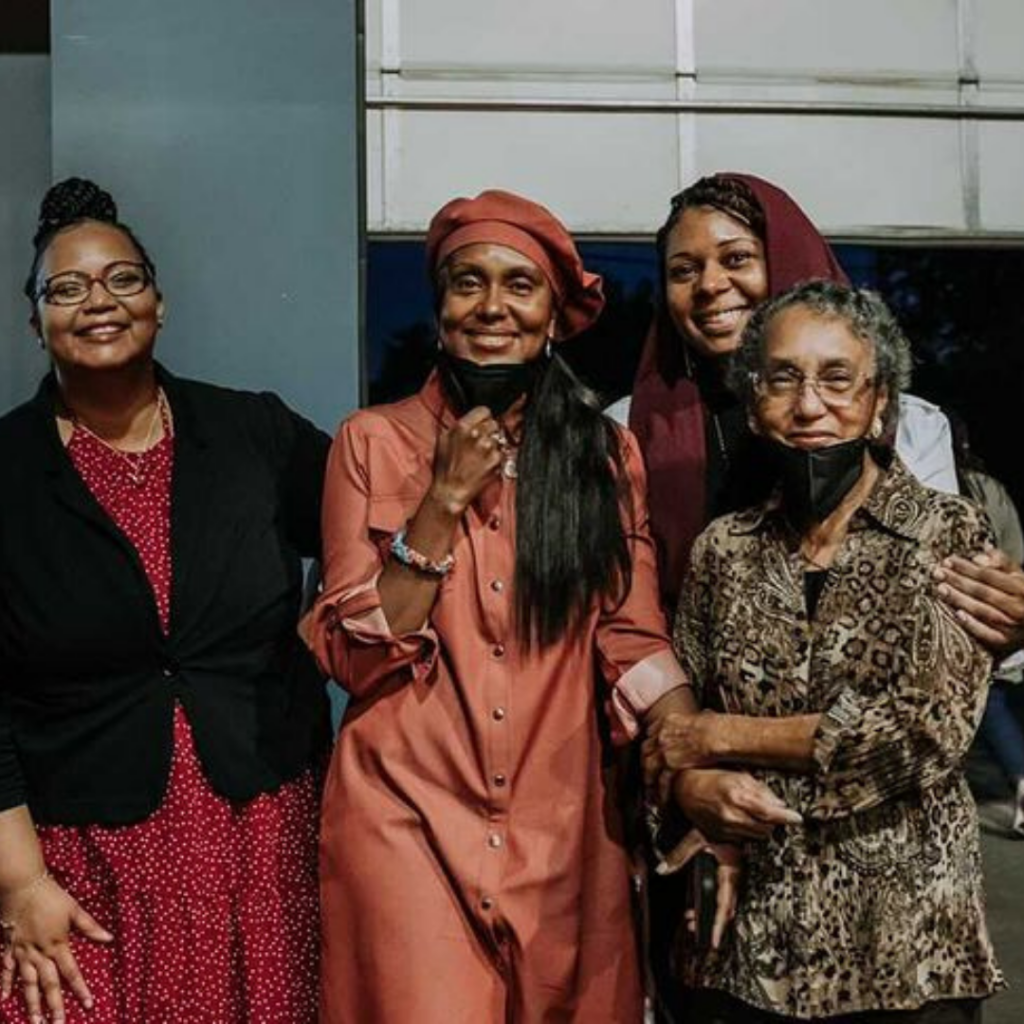
Joyce Randolph and Vivian Muhammad, the mother-daughter team, originally started the farm as a backyard garden for themselves, but it quickly grew into a garden for the community. Four generations of the family are involved with the farm. Vivian loves making a positive impact on the community she calls home.
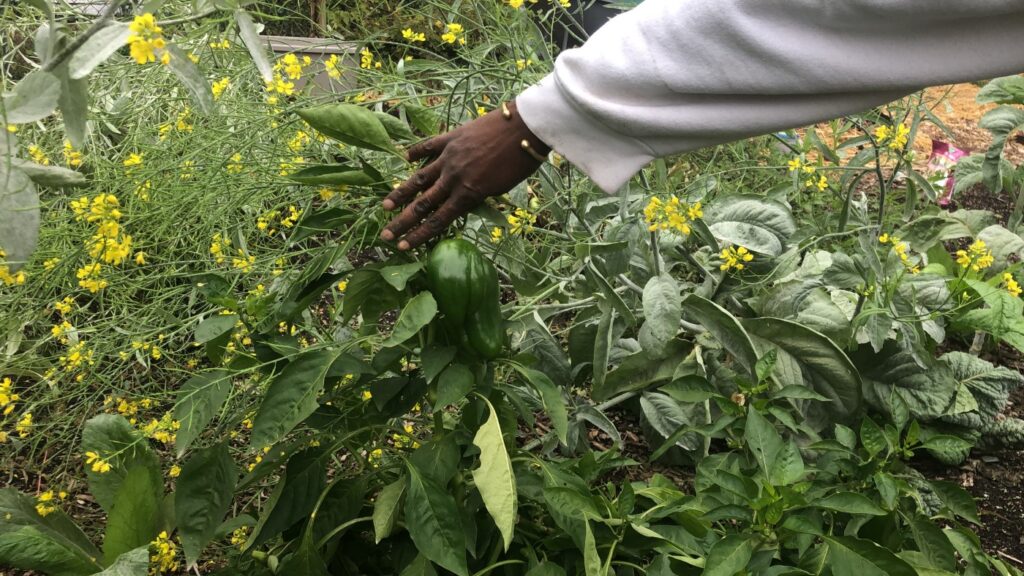
Mother Love’s Garden is focused on teaching the community how to be creative; growing, preserving, and distributing naturally grown products on a limited budget, while improving the health and wealth of their community and environment. They have been growing produce in the King Commons neighborhood for over four years, and they have several lots in the same area which they are turning into various forms of organic gardens.
Connect with them on Facebook.

Tysha Ahmad is the garden manager of Mother Love’s Garden. Her love for growing food was fostered by her parents who taught her the value of knowing your food sources and finding help in neighbors, family, and friends. Along with gardening, Tysha also loves art and traveling!
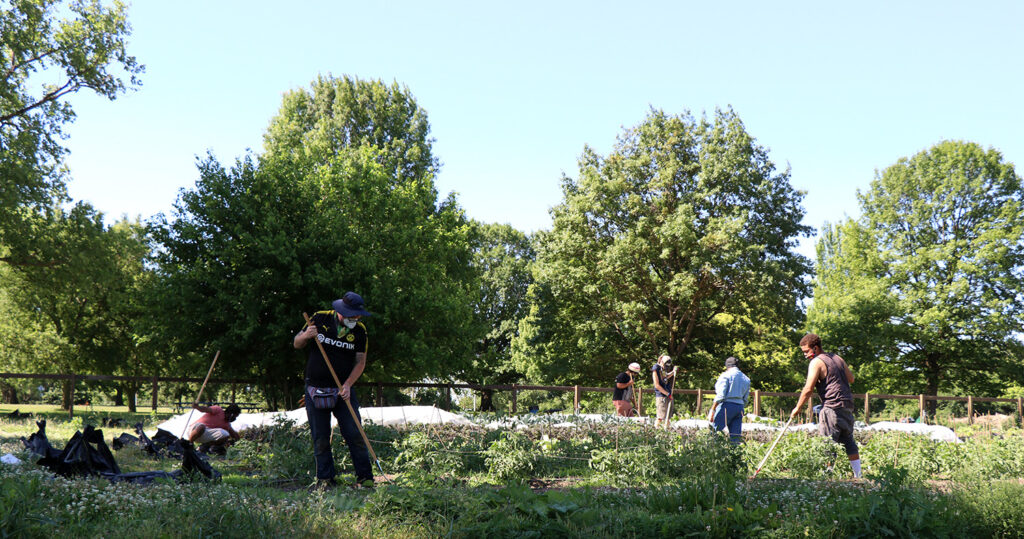
Flanner Farms, operated by Flanner House, runs a community-focused, two-acre farm in northwest Indianapolis. They recognized that the area was turning into a food desert and the community needed access to fresh produce, so they opened up their farm in 2016. Now, they provide an abundance of fresh, healthy, and affordable produce to the community while also empowering locals to become more self-sufficient and providing employment opportunities.
Connect with them on Instagram and Facebook.
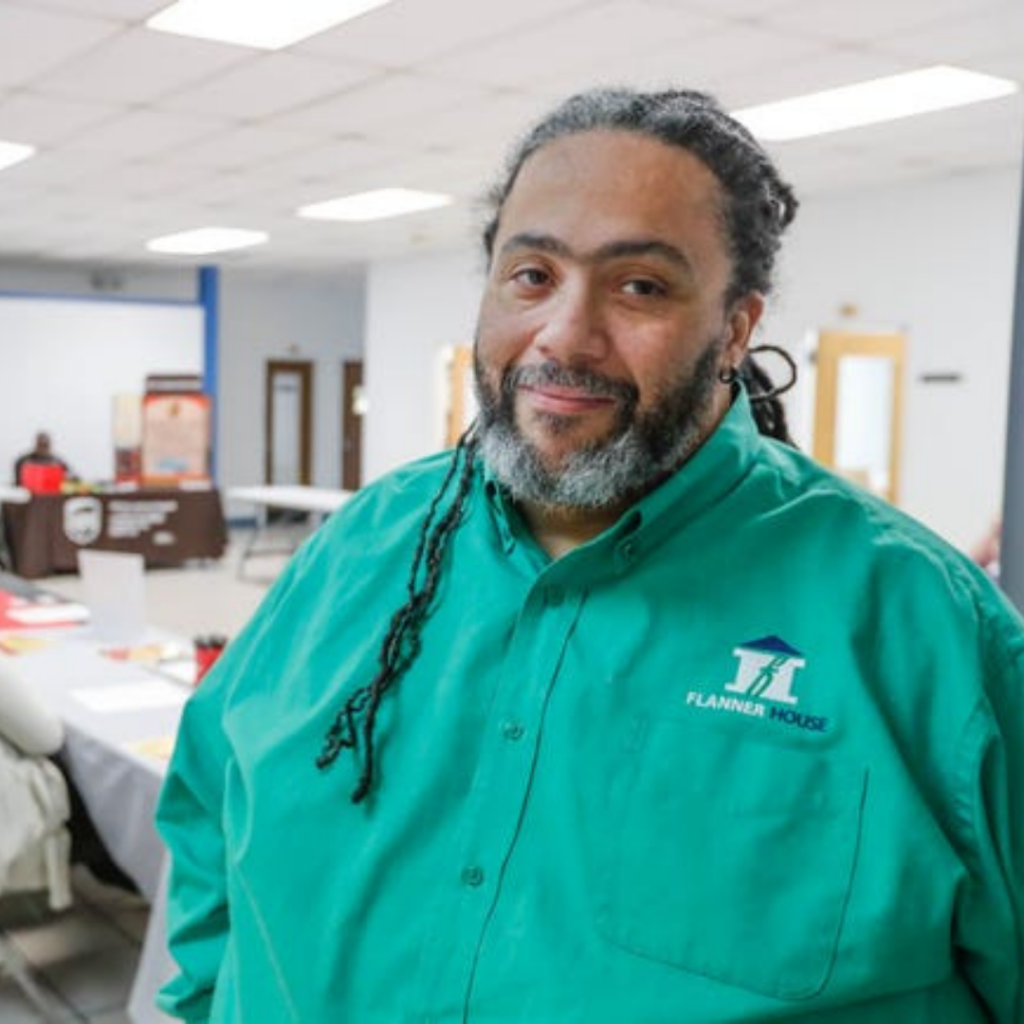
Executive Director Brandon Cosby of Flanner House recognized the severity of the food desert. He generated a plan to improve food access through this farm.
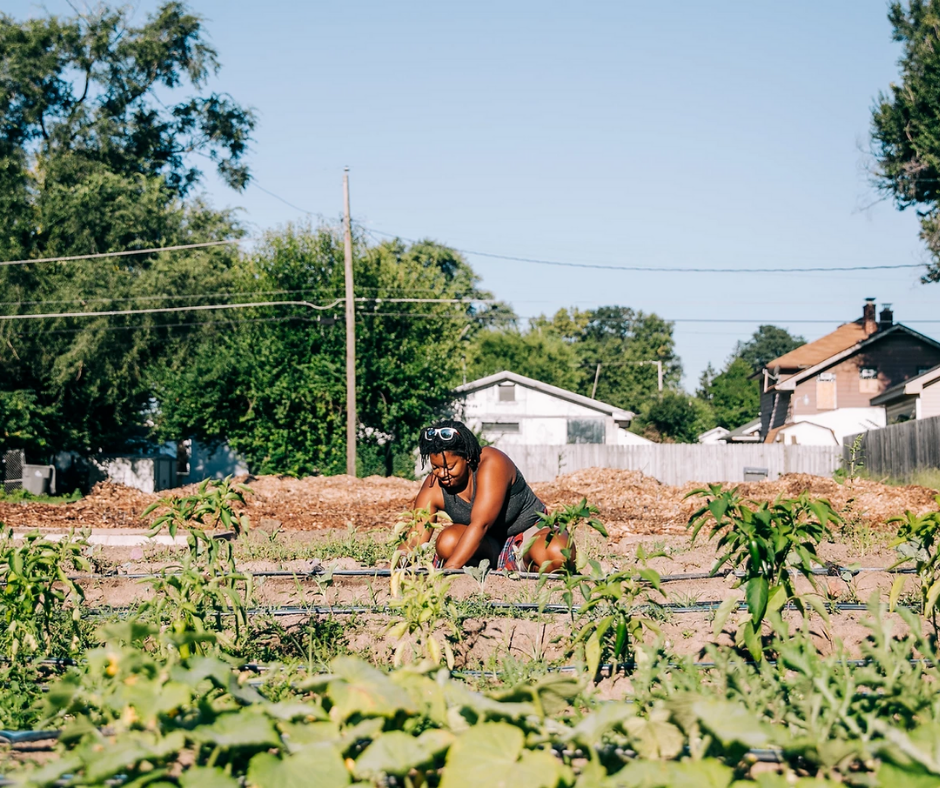
Soul Food Project is a nonprofit urban farm located in northeast Indianapolis. Since 2017, they have been fostering wellness in the community by increasing access to local food. They bring the community together by offering hands-on education programs and providing a creative space for artists.
Connect with them on Instagram and Facebook.

Danielle Guerin is the Executive Director of Soul Food Project. Danielle’s love for farming grew out of an internship for a community garden where she led youth programs and educated the community on farming practices. This inspired her to establish the Soul Food Project.

